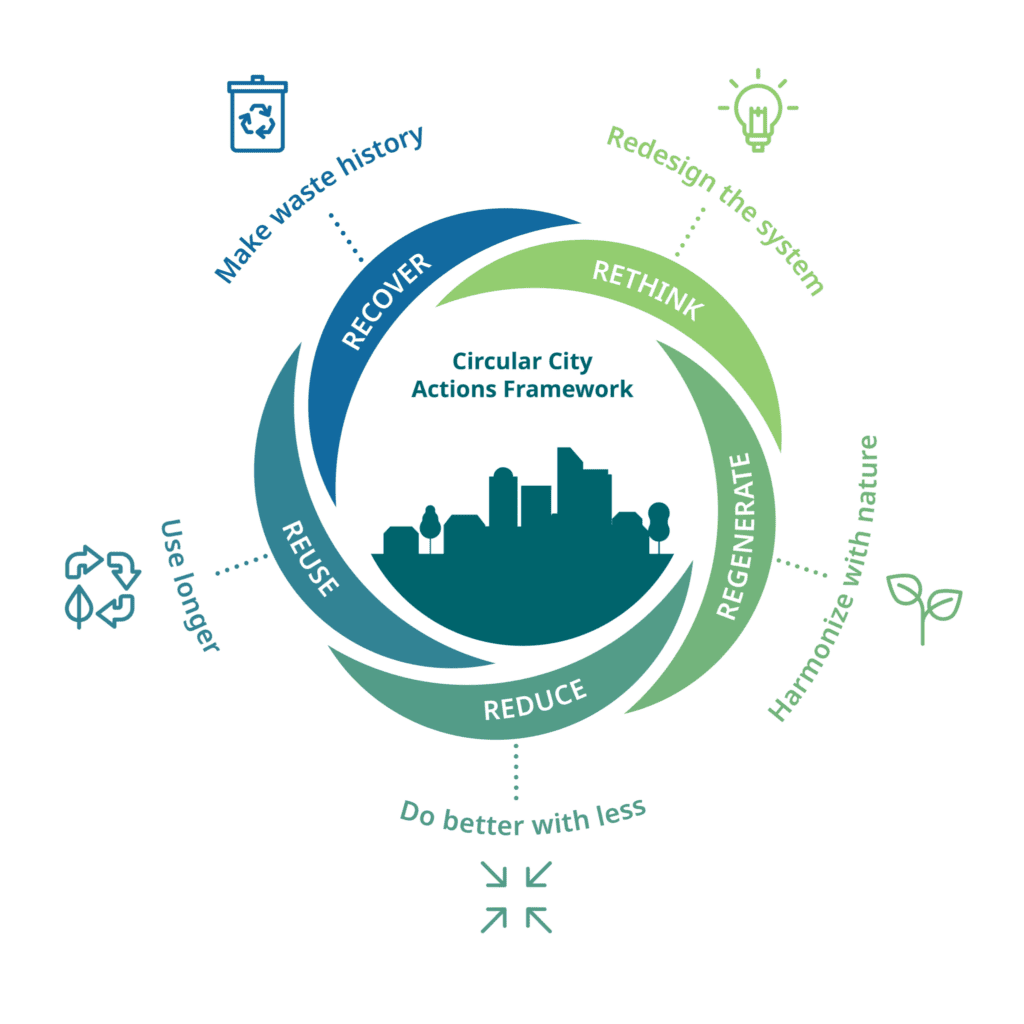A circular community is one that promotes the transition from a linear to a circular economy in an integrated way across the public and private space and in all local government functions in collaboration with residents, businesses, community-based organizations, and the research community. In practice, this means shifting away from the linear economy’s “take, make, waste” model and moving to an economic system where the value and utility of infrastructure, products, components, materials, and nutrients is maintained for as long as possible.
Did you know two-thirds of the world’s population will be living in urban areas by 2050? According to the Ellen MacArthur Foundation, despite taking up just two percent of the global landmass, cities consume more than 75 percent of natural resources, are responsible for over 50 percent of solid waste and emit up to 60 percent of greenhouse gas emissions.
This introductory level cohort will provide participants with the foundations of circularity so they can act across sectors and value chains to shift away from the “take-make-waste” model by implementing the Circular City Actions Framework (applicable to towns, counties, regions as well!), which is composed of five interconnected strategies from resource extraction to waste management: Rethink, Regenerate, Reuse, Reduce, Recover.
Sessions will focus on the sectors, policy instruments and interventions at the local level that can bring the biggest change towards a more circular economy. Join this cohort and learn how to integrate circularity within your climate and sustainability action to improve resource access, lower emissions, protect and enhance biodiversity, and reduce social inequities in communities.
ICLEI will provide participants with:
- Live, 1-hour web-based presentations every two weeks for five months
- Peer exchange and learning, including circular solutions from cities throughout the U.S. and internationally
- ICLEI’s Circular Strategies Matrix, templates, and other resources
- 1:1 calls with ICLEI advisors to discuss your community’s goals needs
